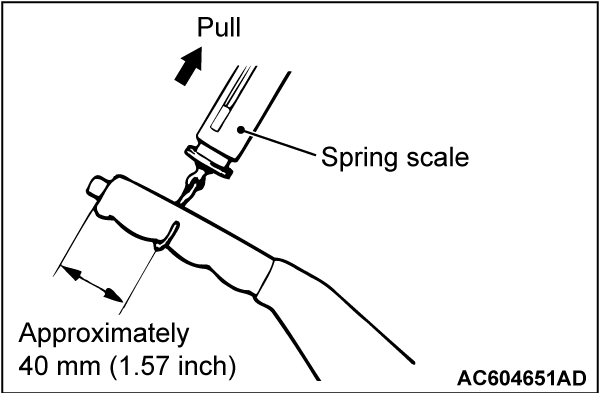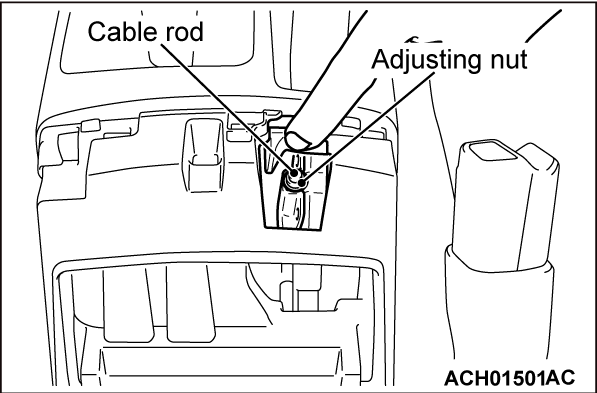PARKING BRAKE LEVER STROKE CHECK AND ADJUSTMENT
STROKE CHECK
Attach the spring scale to the center of the parking brake lever grip. Then, check that the stroke is within the standard value when the parking brake lever is pulled to the vertical direction of the lever with a force of approximately 200 N (45 pounds).
Standard value: 6 to 7 notches
STROKE ADJUSTMENT
If the parking brake lever stroke is out of the standard range, adjust as described below:
2. Loosen the adjusting nut to the end of the cable rod in order to allow slack in the cables.
3. Check that the parking brake lever on the caliper side is touching the parking brake lever bracket.
| note | If the parking brake lever is not touching the parking brake lever bracket, the parking brake cable might be stuck or routed incorrectly, or there might be a problem with the automatic adjustment mechanism inside the rear brake calipers. Therefore, it is necessary to check the parking brake cable and to disassemble and inspect the rear brake calipers. |
4. Depress the brake pedal repeatedly until the brake pedal has no change in its stroke.
| note | Depressing the brake pedal repeatedly adjusts pad clearance correctly. |
5.
| caution | Be careful that the parking brake lever notch number should be within the standard range. If the notch number is too low, rear brake dragging can be caused. |
Adjust the parking brake lever stroke to the standard value by turning the adjusting nut. After adjustment, check that there is no free play between the adjusting nut and the parking brake lever.
6. After the parking brake lever stroke is adjusted, raise the rear of the vehicle. Release the parking brake, and turn the rear wheels to confirm that the rear brakes are not dragging.
![[Previous]](../../../buttons/fprev.png)
![[Next]](../../../buttons/fnext.png)


